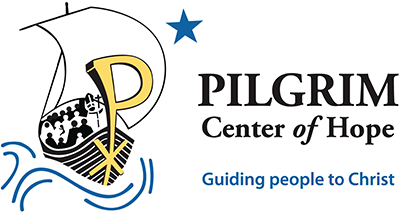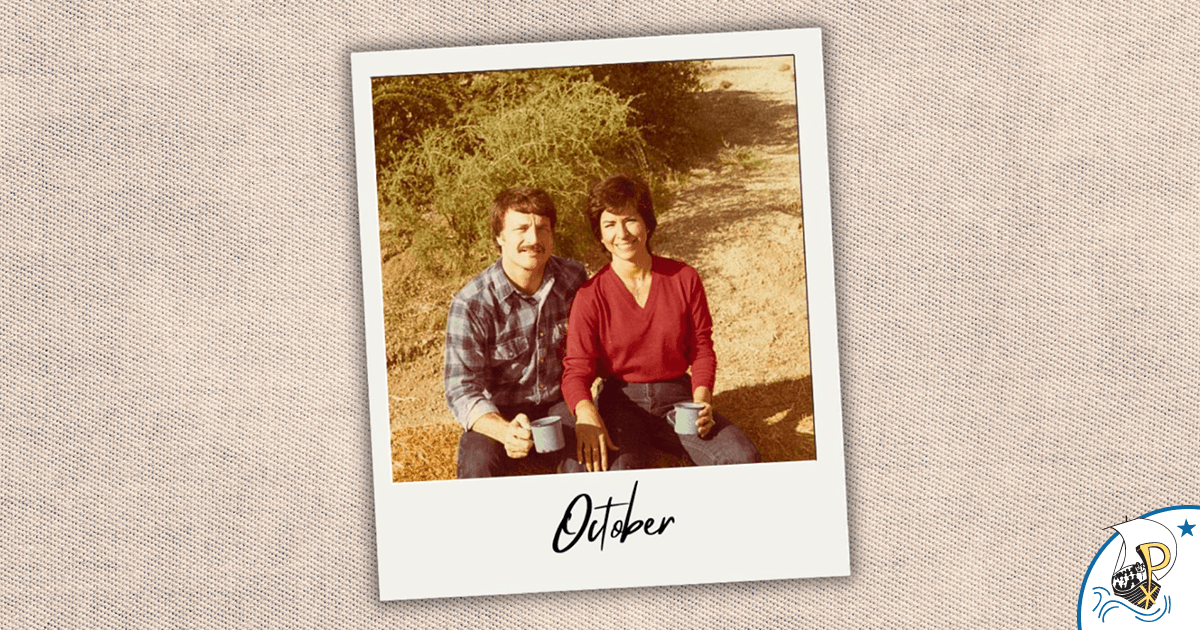This month, we learn how the missionary spirit which was planted and rooted during their first two visits to the Holy Land begins to grow in the hearts of Deacon Tom and Mary Jane Fox.
1986
Mary Jane: It is not long after our return from the Holy Land and back to life’s usual routine that our hearts grow restless. I came home after a particularly tough day at work and told Tom, “If I am going to bust my hump this hard, I would rather do it for God!” He shared that he too was feeling agitated in his job and was getting a sense that we are being called in a new direction. We pray for guidance and begin exploring together ways that a married couple can make a living working full time in Christian ministry. We heard about Maryknoll Missionaries and the work they do serving the poor and marginalized around the world. We wonder if they accept married couples. This is years before most people have access to the Internet, so it is not easy to find out about Maryknoll or other potential opportunities. We decide the best course of action is to ask our pastor.
We pay a visit to Monsignor Flynn and share what is going on in our minds and in our hearts. He says, “You don’t have to leave the country to be a missionary.” He shares with us a desire he has for a home visitation ministry in the parish. He has a vision to offer an outreach ministry; a way for all those living in the area to connect with the parish. He discusses the pay, and asks if this might be something we would be interested in. We are not sure how to respond, and tell him so. Monsignor asks us to go home and pray about it.
Deacon Tom: When you make the decision to follow the path God has for you, it is wise to prepare your mind that this path may take a completely different course than what you originally thought. We did not understand this at the time and struggled to understand God’s will for us. Surely, it was God who placed in our hearts this missionary zeal and desire to leave our careers for a radically different life. We had images of boarding planes and busses, and traveling to distant countries and remote villages; could God actually be asking us to serve in the few miles surrounding our home? We went home with even more questions than we came with.
As Monsignor Flynn suggests, we pray. Mary Jane and I have long discussions, as well. We realize leaving our careers will change our lives dramatically. We will have to sell one of our cars, many of our possessions, and live much simpler. We discuss our thoughts with family and friends, and they respond with both support and concern.
Mary Jane: Leaving my career in travel, and the sales incentives I earned, would make another visit to the Holy Land impossible. Were we ready to make this change? Would we be happy if we never again are able to make a pilgrimage to Jerusalem? Tom and I pray together and separately and both receive the assurance that this is the path on which God is leading us. This assurance includes the decision that it would be wiser and more prudent to make a dramatic life change closer to home and family. As our questions give way to assurance, our fears give way to excitement. We call Monsignor Flynn, and accept his offer to lead the St. Matthew Parish Home Visitation Ministry.

The Catechism of the Catholic Church (no. 852) states,
Missionary paths. The Holy Spirit is the protagonist, "the principal agent of the whole of the Church's mission." It is he who leads the Church on her missionary paths. "This mission continues and, in the course of history, unfolds the mission of Christ, who was sent to evangelize the poor; so the Church, urged on by the Spirit of Christ, must walk the road Christ himself walked, a way of poverty and obedience, of service and self-sacrifice even to death, a death from which he emerged victorious by his resurrection." So it is that "the blood of martyrs is the seed of Christians."
The Foxes were beginning to get a glimpse of what it means to surrender their lives to God. The Holy Spirit is, as the Catechism teaches, “the protagonist.” He guides Deacon Tom and Mary Jane to pray, to seek guidance from their pastor, and through the virtue of prudence to discern the way forward. The decision is theirs to make but taking these steps of discernment provided the confidence and courage they needed to seek a new direction.

